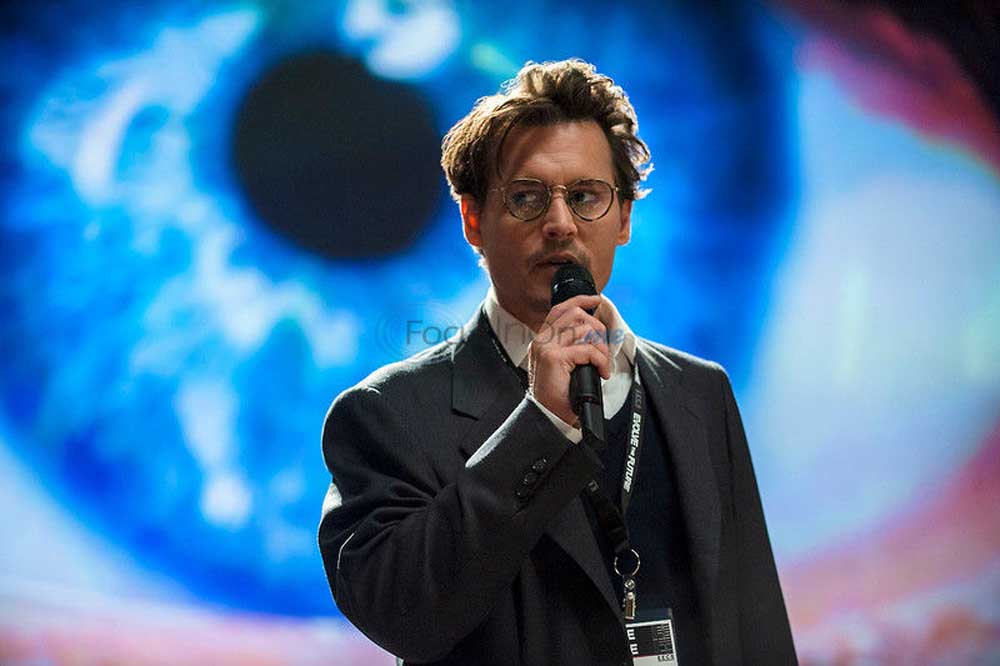‘Transcendence’ can’t rise above its B-movie material
Published 3:16 pm Friday, April 18, 2014

- Johnny Depp stars in "Transcendence" as Will Caster, a scientist who has his consciousness uploaded to a computer. -- Courtesy Photo
BY STEWART SMITH
ssmith@tylerpaper.com
In the lead up to my viewing of “Transcendence,” I found myself constantly comparing it to “The Lawnmower Man,” the ridiculous sci-fi horror movie that came out in 1992. It turns out I’ve been doing “The Lawnmower Man” a disservice with said comparison.
You see, both are terrible movies and share a few similar ideas, but at least “The Lawnmower Man” has its cornball cheesiness going for it. “Transcendence” has the same sort of B-movie DNA coursing through its veins but spends its entire runtime acting so po-faced that it can’t reach the same “so bad it’s enjoyable” heights that “Lawnmower” occasionally reaches.
To its credit, “Transcendence” kicks things off on a much more solid premise than “virtual reality can make you into a digital God.” Rock star scientist Will Caster (Johnny Depp) has been working alongside his wife, Elizabeth (Rebecca Hall) and their close friend, Max (Paul Bettany) developing artificial intelligence. Max wants to use AI to help cure disease. Elizabeth is convinced AI can be used to help heal the planet. But Will is especially focused on The Singularity, or, as he calls it, transcendence: an omniscient AI with computing power that dwarfs “the collective intelligence of every human in the history of the world.”
This research has spooked a growing terrorist cell known as RIFT and they begin taking out AI labs across the country. They attempt to assassinate Will following a lecture, but he’s instead left to slowly die thanks to the radioactive isotope the bullet was infected with. Elizabeth becomes unshakable in her mission to save her husband, though, and insists she and Max attempt to upload Will’s consciousness to the AI mainframe they’d all been working on.
Despite Max’s warnings that it won’t truly be Will that gets uploaded, Elizabeth completes the procedure and it appears to have been a success. Of course, it’s not long before RIFT gets wind of this and it’s off to the races as AI Will and Elizabeth flee their attackers while trying to accommodate Will’s need to “expand.”
One of the big problems here is in the mixed messaging. Will rarely feels like a genuine threat. Most of the time he’s coming up with ways to regenerate dead plants or heal the sick and elderly. Granted that comes at the price of them being linked into a collective consciousness via nanomachines, but it’s not until the film’s final stretch that Will becomes anything remotely resembling a global threat, and even then Pfister (and the terrible script) does an extremely poor job of communicating why he’s doing Bad Things.
Conversely, RIFT is (more often than not) presented as the film’s ostensible bad guys. They murder without hesitation and even kidnap and mercilessly beat Max to get information out of him. They’re not nice or even likable people, and yet the film clearly presents their paranoia and fear as being “correct.” This might have made for an interesting conflict of ideals, but neither first-time scribe Jack Paglen’s plodding script nor Pfister’s lifeless direction can wring that sort of nuance out of the proceedings.
There were moments when I kept thinking the movie might spring to life and show some signs of a pulse. Will eventually starts augmenting the humans he heals with nanomachines, granting them super strength, psychic communication and regenerative healing abilities, perfect elements for an action-packed showdown between Will’s hivemind zombies and the military/mercenaries dispatched to try and take Will offline. Then again, maybe I might’ve found more tension in the climax if the movie’s opening moments didn’t immediately tell you how it all ends. It’s such a boneheaded decision that I can’t even begin to understand the logic behind it.
Again, maybe I’d have less of a problem with much of the material here if Pfister actually understood that the material is B-movie silliness. Instead, he bogs himself down by treating the proceedings like he’s making a thought-provoking statement. Too bad that statement is little more than “Technology is bad, mmmkay?” C’mon, Wally. You’re working from a script where someone unironically suggests “taking down The Internet” as a legitimate means of stopping Will, as though that were an actual Thing You Can Do. Your movie isn’t smart, so stop pretending it is.
I suppose there’s a chance that someday someone might find the same kind of silly satisfaction that I get out of watching “The Lawnmower Man,” but it’s doubtful. Not when “Transcendence” spends most of its runtime plodding lifelessly from one bland scenario to the next.
I had hope for this one. Given the concept, star power behind it and the fact that Pfister has worked closely with a strong director like Christopher Nolan for much of his career, there was a better than likely chance this could have been something interesting, or at the very least fun. Turns out it’s just mind-numbingly boring.






